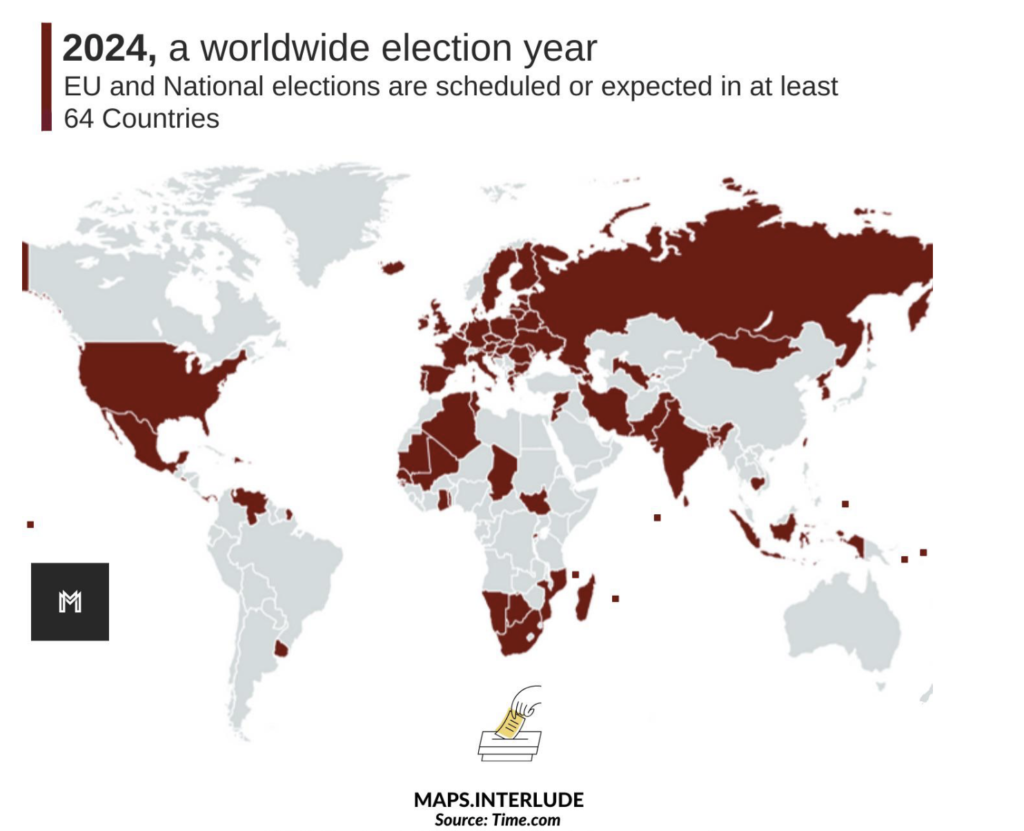Welcome to 2024! Our team is eagerly looking forward to what has been dubbed “The Year of Elections.”

Current affairs: Unveiled, dissected, and explained.
Welcome to 2024! Our team is eagerly looking forward to what has been dubbed “The Year of Elections.”

Young voters in Asia are emerging as a critical demographic in shaping electoral outcomes. In the upcoming 2024 Indonesian general election, for instance, millennials and Gen-Z voters comprise more than half of the eligible voting population. This significant proportion underscores their potential to decisively influence the presidential and legislative elections.
In Taiwan, whom young people ultimately vote for — and how many vote at all — could be crucial in deciding the presidential election on Jan. 13. About 70% of Taiwanese in their 20s and 30s voted in the 2020 presidential election, a lower share than among middle-aged and older voters, according to official data. People ages 20 to 34 count for one-fifth of Taiwan’s population, government estimates show.
Meanwhile, in India, there has been an ongoing concern about the number of young people who are eligible to vote but do not. Prime Minister Modi took to Twitter before the recent state elections to encourage young and first time voters.
Continue reading “Young voters in Asia”Following up from our previous situational brief on Taiwan’s elections, some dramatic developments last week.
Taiwan’s upcoming January 2024 presidential election is a pivotal moment in its political landscape, marked by the candidacy of four main contenders: Vice President Lai Ching-te of the Democratic Progressive Party (DPP), Hou Yu-ih of the Kuomintang Party (KMT), Ko Wen-je of the Taiwan People’s Party (TPP), and independent candidate Terry Gou. This election is closely watched by both Washington and Beijing, given its implications for cross-Strait tensions and Taiwan’s global relationships.
The election’s focus is on managing relations with China, a key foreign policy issue, alongside domestic concerns such as economic and environmental policies. Lai Ching-te emphasises increasing Taiwan’s autonomy and security through closer relations with the United States and other democracies. The DPP has been at the helm during a period of growing tensions in the Taiwan Strait. Conversely, Hou Yu-ih from the Kuomintang (KMT) party, campaigns on averting war with China, asserting that the KMT is better equipped to manage cross-strait tensions.
Continue reading “Taiwan’s Presidential Elections: Situational brief”